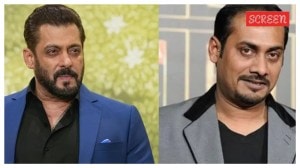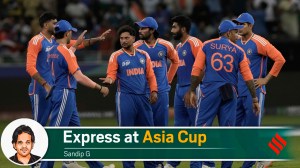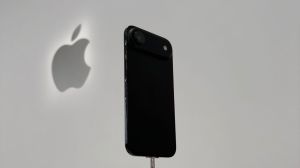‘‘When 675 million people go to the polls, the world should take notice’’
Some people find it hard talking to him. People who, otherwise, speak all the time on air. People like L.K. Advani, Sonia Gandhi, Anil Amban...

Some people find it hard talking to him. People who, otherwise, speak all the time on air. People like L.K. Advani, Sonia Gandhi, Anil Ambani and Tony Blair. Or UN Secretary General, Kofi Annan. A pity, really, because Tim Sebastian would love to talk to them.
‘‘For seven years, Blair has been saying it is not convenient to appear on the show,’’ says the host of BBC World’s Hardtalk,‘‘And, if other U.N. officials do the show, why not the big man himself? There’s a huge list of people who won’t talk to us. They find it too hard.’’
Sebastian, in India to record a series of interviews just before the General Elections, asked for meetings with Deputy Prime Minister Advani and Congress President Sonia Gandhi, ‘‘and I think Rahul Gandhi too,’’ but was turned down in each case. While it was a flat no from the Gandhi camp, Advani had initially agreed to meet Sebastian in Porbander at the start of the second leg of his Uday Yatra. The interview was fixed for an early morning 7 a.m. ‘‘We called his bluff and agreed. At the last moment, he pulled out,’’ reveals Sebastian, ‘‘no reason given. This is something of a pattern with Mr Advani: he does not like to come to our table. He has avoided us in England and in India. Personally, I am really sorry.’’
In the face of these refusals, Sebastian had to cast his net much wider: he ensnared a few of the usual media suspects—BJP’s Arun Jaitely, Delhi Chief Minister Sheila Dixit—as well as VHP’s Vishnu Hari Dalmia and Syed Shahabuddin. You will also see NASSCHOM chief, Kiran Karnik in forthcoming episodes of the daily talk show. ‘‘Outsourcing is a big issue—you’re pinching our jobs,’’ Sebastian pauses, grins, ‘‘That’s a joke.’’ Naturally.
What did he think of his guests? ‘‘Politicians are the same everywhere. Yours don’t have an extra mole in the neck. We hear the same arguments, the same excuses.’’ Press him to be up close and more personal and he says Dalmia was ‘‘quiet, calm, consistent in his line. What he said may not be a surprise to audiences here but it is potentially explosive for outside audiences.’’ Want to know more? Watch the show.
Sebastian admits that this, his fourth trip to India in almost as many years, is unusual. What brings one of BBC’s most famous personalities so frequently to this country? ‘‘It is a mark of the importance BBC gives India,’’ he explains, ‘‘and when 675 million people go to the polls, the world should take notice.’’
Regular viewers of Hardtalk may have noticed two recent phenomena: the show is more political. It has an agenda: Iraq and WMD—‘‘ we don’t intend to forget them’’, terrorism and human rights violations. It does not include soft personalities. You won’t see Sebastian interview a cricketer. ‘‘I know it is hugely important in India but personally, I would not like to do it.’’ Here, Sebastian shares a secret: ‘‘As I child I played cricket – I hated it.’’
Sebastian has reduced the number of Hardtalk appearances. He wants time out for ‘‘other things’’. If you’ve read about him before, you’ll know the TV host is also an author. ‘‘Written eight books,’’ he says, ‘‘thrillers. I began when I was in Russia during the Cold War. My son calls it ‘airport trash’. Probably is.’’
Don’t be fooled by the banter and soft touch. Sebastian is a committed TV journalist. Ask him if the Hutton Report’s criticism of BBC’s role in the David Kelly affair has led to editorial changes or interference: ‘‘No change whatsoever for me. If there is, that’s the day I walk out.”
Photos



- 01
- 02
- 03
- 04
- 05



























